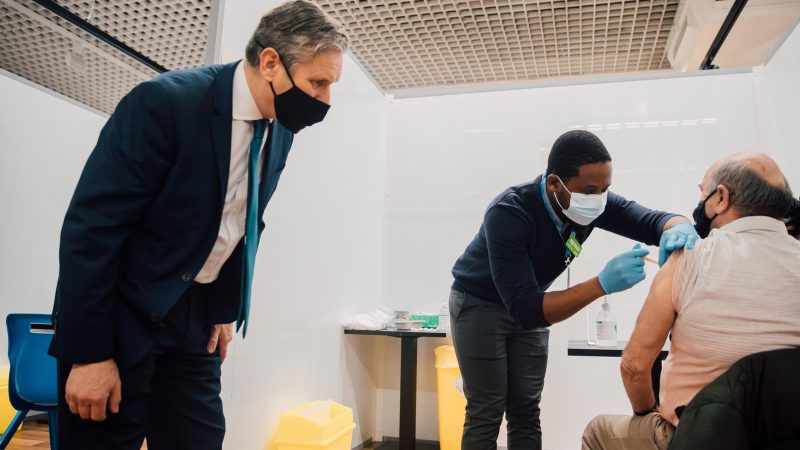
In her report on the impact of Covid-19, Baroness Doreen Lawrence wrote that Black, Asian and minority ethnic (BAME) people have been “over-exposed, under-protected, stigmatised and overlooked during this pandemic – and this has been generations in the making”. It did not take us long to realise from those early deaths that ethnic minorities were over-exposed and under-protected, and it quickly became evident that the virus was disproportionately impacting BAME communities. The pandemic has thrived on inequalities in race, health, income and wealth.
These inequalities work together to generate dire consequences. With BAME workers more likely to be in low-paid jobs, sometimes on agency or zero-hours contracts, self-isolating is seldom a viable option. Ethnic minorities are similarly more likely to live in overcrowded accommodation with multi-generation households, with children inadvertently exposing parents and shielding grandparents to the virus. Black, Pakistani and Bangladeshi children are less likely to have access to a laptop and the internet for home schooling, leaving them even further behind their classmates.
Combine these realities with the fact that ethnic minorities are less likely to be working from home, more likely to be using public transport to get to work and more likely to be working as a frontline key worker with inadequate personal protective equipment – and it is all too easy to see why these structural inequalities become deeply entrenched. In recent days, we have started seeing the latest manifestation of these inequalities: the impact of vaccine uptake in ethnic minorities.
The Royal College of GPs data analysis indicates that 14.4% of white people have been vaccinated. Only 9.2% of Asian people, 6.8% of Black people and 4.7% from mixed ethnic groups can say the same. A virus that is four times as likely to kill a Black person than a white person now sees white people twice as likely to have had the vaccine. Data published at the end of January by Guy’s and St Thomas’ NHS Foundation Trust in London found that 80% of white hospital staff had been vaccinated, but just 25% of Black people had been vaccinated. Vaccination rates in Filipino staff were even lower.
Covid has exposed brutal truths amongst ethnic minorities, so it’s not surprising that it has eroded trust in the government. It is telling that even with the knowledge gained during the first lockdown about disproportionality, shamefully little has been done by the government to plan for that in the vaccine rollout. The “genuine and deep concern” expressed by chief executive of NHS England Simon Stevens is welcome, but what is urgently needed is a robust strategy and plan to tackle this variation.
It requires a considered approach to rebuild trust, dispel the myths and raise awareness. We can only rebuild that trust in our communities with services, awareness campaigns and uptake programmes designed by local people. GPs, pharmacists, community groups and faith leaders must co-design these services. Places of worship, often at the heart of the communities where ethnic minorities live, should be mobilised as vaccination centres.
The government must urgently fund a sustained national campaign that encourages vaccination take-up, rebuts false claims about vaccine ingredients and delivers tailored messages in languages – harnessing the reach that sports, music and TV personalities can bring. The hostile environment will also need to be abandoned. If the government is serious about ensuring the UK has maximum protection against the virus, we will need to make sure undocumented immigrants have access to public health services.
Outcomes will need to be continuously monitored. Local weekly snapshot data needs to include vaccination uptake data, and broken down for ethnicity, so that government, councils and clinical commissioning groups can respond quickly. As we know that there is greater vaccine hesitancy in particular ethnic groups, data published by ethnic group is crucial.
There is no doubt that we have got into this position because Black, Asian and ethnic minority people have not been the ones in the driving seat when policies are developed and implemented. Swing by your local hospital reception area and see the photos of the executive and non-executive directors and the chances are ethnic diversity will be missing. The lesson must be learned to ensure ethnic minority communities are at the heart of the response to ensure it addresses root issues and maximises impact.
Without an intersectional approach, driven by Black, Asian and ethnic minorities, we will continue to see severe consequences and further entrenchment of racial inequalities in our society. For too long, equalities have just been an afterthought for this government. People have been failed throughout this pandemic, and only an approach with equality and intersectionality at its heart will succeed. Baroness Lawrence recognised that the race inequalities have been generations in the making. On vaccines, we have a collective duty to ensure nobody is left behind. And to build back better, we need race equality at its heart.




More from LabourList
Nudification apps facilitate digital sexual assault – and they should be banned
Diane Abbott suspended from Labour after defending racism comments
Labour campaign groups join forces to call for reinstatement of MPs